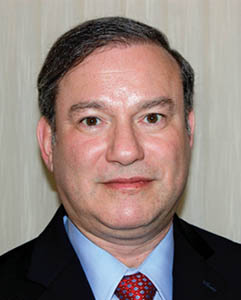


How important is a blessing? How far would you go to obtain a blessing from a righteous person? Would you cross the ocean for a bracha?
In this week’s parsha of Toldot we see a prime example of the value of a blessing. In fact, all 46 verses of Chapter 27 are devoted to the story of how far Yaakov had to twist and turn events so that he could get the preferred blessing from his aging father. Yaakov eventually fools his father, Yitzchak, into giving him the blessing that was meant for the firstborn (27:28). Esav, his older brother, reportedly “cried out an exceedingly great and bitter cry,” begging for a blessing too (27:34-37). “Surely you have a blessing left in reserve for me as well, don’t you?” he exclaimed.
This past Thanksgiving Day weekend took me on a journey of 3,380 miles, culminating in my receiving a special bracha from a righteous, elderly man. However, the story actually begins 16 years earlier. As my late father, a”h, a Polish Holocaust survivor, was reaching his later golden years, he felt the urgent need to record his concentration camp memoirs. He had been held captive in 10 labor and concentration camps controlled by the Nazis. He had to use his guile and wits to simply stay alive despite the tremendous horrors and obstacles he had encountered. Together, we published a book called “Memoirs of a Holocaust Survivor: Icek Kuperberg.” Thanks to the modern advent of Kindle e-books, over 68,000 copies of his book have been sold all over the world these past many years. Dozens of copies are still being ordered and read by new readers every month.
One of these readers was a gentleman in Manchester, England, by the name of Stuart Ferster. While reading the book he discovered that his 94-year-old father, Chaim Ferster, had a tattooed number on his left arm that was within 200 digits of my father’s. Not only that, his father had been a captive of many of the same concentration camps at the same time as my father. These included camps such as Auschwitz and Niederorschel. Both had been liberated from Camp Buchenwald by American soldiers of the Third Army, led by General George S. Patton, on April 11, 1945. In fact, their lives had taken parallel tracks toward the later years of the war. This was an amazing coincidence that stirred up the imagination. They must have crossed paths or at least been on similar transport trains during the war.
Chaim’s son, Stuart, tracked me down earlier this year. I was invited to meet with his father at his home in northern Manchester, England. My first opportunity to visit came about this past Thanksgiving Day weekend. My wife and I made arrangements to travel to the area and we left for our adventure.
It was a pleasure to meet Mr. Chaim Ferster in person. We had lunch and conversed with him, together with his family, for hours. We exchanged pictures of relatives from the 1940s. He told us of his upbringing and how several of his family members were lost durimg the war. He even played “Hatikva” for us on the violin. He had clear memories of his various experiences during and after the war. He had strong opinions of how the Holocaust could be better remembered for future generations.
I discovered that Chaim had lived in Sosnowiec, Poland, before the war, the same city that my late mother had called home. Unlike my parents, however, he left for Sweden after the war and was later taken in by an uncle in Manchester who helped set him up in the family business. As his sons, Warren and Stuart, matured, they too were brought into the business. The company was successful and eventually went public on the stock exchange.
Chaim spent many years educating children across the United Kingdom regarding the events that took place during the Holocaust. Hearing the stories firsthand from an actual survivor made a greater impression upon them than just reading about them in a book. He was recognized by Queen Elizabeth II at a ceremony in 2012 where he received the “British Empire Medal” for his achievement in educating the public about the Holocaust.
The Satmar Rebbe was once asked who is worthy enough in this generation to bestow a bracha. He answered that if we come across an individual who had a tattoo from a concentration camp and still wears tefillin, this is a righteous individual whose blessing should be sought. Before we said our goodbyes, Chaim was kind enough to bestow his blessings upon my wife and myself. How far did we go for a bracha? The answer is 3,380 miles, across the ocean. Corresponding with the secular holiday of Thanksgiving Day, we were thankful and appreciative to have had the opportunity to get together in such a manner.
By Rabbi Dr. Avi Kuperberg
Rabbi Dr. Avi Kuperberg is a clinical psychologist who leads the Gemara shiur at the Summit Avenue Minyan in Fair Lawn every Shabbos afternoon.










